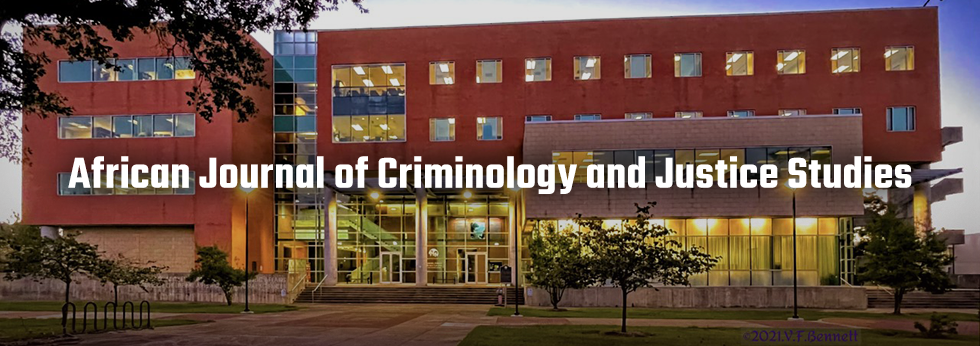Abstract
Antiquity trafficking has over time remained at the margin of criminological discourse in Nigeria. This silence from the criminological lens is, however, not an indication that the country is immune from the criminal activities of antiquity traffickers, but rather, it is a reflection of the common belief that this form of criminality is less rampant in Nigeria. This paper therefore examines the nature, causes, consequences and the control of the problem of illicit trafficking in the Nigerian cultural antiquities. Author adopts Cohen and Felson’s (1979) routine activity theory of crime to explain indices that formed the interplay of antiquity trafficking in the country. The author contends that factors promoting this form of crime are multidimensional, and this criminal practice has long-term negative effect on the Nigerian cultural history. A comprehensive plan of action is advocated as a practical step to effectively tackle this problem.
Recommended Citation
Ojedokun, Usman Adekunle
(2012)
"Trafficking in Nigerian Cultural Antiquities: A Criminological Perspective,"
African Journal of Criminology and Justice Studies: Vol. 6:
Iss.
1, Article 10.
Available at:
https://digitalscholarship.tsu.edu/ajcjs/vol6/iss1/10


